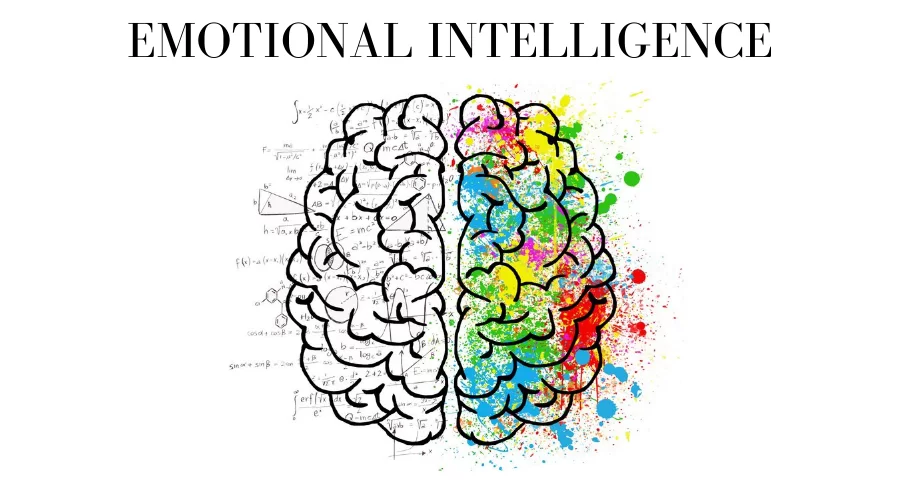Emotional intelligence can help you achieve your goals in your career and in your relationships. This is because it allows you to become more aware of your feelings and thoughts and makes you better at communicating with others.
Emotional intelligence Improves Self-awareness
Developing self-awareness is one of the essential facets of emotional intelligence. It can help you improve your life in many ways. The more self-aware you are, the better you will handle stress and make decisions.
Self-awareness is also helpful when it comes to relationships. You can develop self-awareness by joining online EI classes. Reading other people’s emotions allows you to understand them and react in the best way for both parties. It also helps you to avoid unnecessary conflict.
Emotional intelligence is vital for leaders and team members. It teaches you to postpone life-changing decisions until you’re in a good place. When you’re feeling good, you have more energy to make the most of your time.
Self-awareness is the ability to recognize your strengths and weaknesses. It can be helpful in all aspects of life. Practising self-awareness can help you improve your relationships with others, learn from your mistakes, and become more confident. It can also help you be more flexible and adapt to changes in your life.
Relationships
Developing emotional intelligence can be a lifelong process. The process combines self-awareness, knowledge and the ability to understand others. The first step is to learn what triggers your emotions.
The other part of the equation is the ability to manage your emotions. This can help you cope with stress, make smarter decisions and improve relationships.
Emotional intelligence is also good at setting healthy boundaries in a relationship. People with high levels of emotional intelligence tend to be more tolerant of their partner’s emotions. They are also less likely to sabotage themselves.
Emotional intelligence also helps in relationships at work. It gives you the confidence to lead, negotiate and resolve issues. It also provides you with the knowledge and resources to help others in your team.
Academic success
Managing emotions is a skill that can help students perform better. Students are often bored and frustrated during tests or assignments and may feel sad or disappointed when they do not get the expected results. However, if they have a solid emotional foundation, they will be able to better deal with those feelings and learn how to solve problems more healthily. Also Read – Mental Health Doing What Matters in Times of Stress
Emotional intelligence can help students cope with stress and manage their relationships with teachers and instructors. Students with a solid emotional foundation also learn to set goals and make better decisions. This helps them avoid burnout and stress in their academic life.
Emotional intelligence is defined as self-awareness, self-management, and impulse control. It also helps students understand their own emotions and other people’s emotions.
Job performance
Whether you’re hiring new employees or looking to enhance the performance of your current staff, emotional intelligence can make a huge difference. Implementing an effective EI strategy can improve productivity, reduce stress, and foster a more harmonious workplace culture.
Emotional intelligence is the ability to recognize and manage one’s emotions. EI also entails a willingness to change one’s behaviour if need be. Having the ability to understand other people’s feelings is an essential skill for negotiating with stakeholders.
Self-awareness is another essential part of emotional intelligence. By knowing and understanding one’s emotions, you can learn what motivates you and how they affect your actions. Recognizing and managing your feelings when in a distressing situation is also essential.
Emotional intelligence also involves a willingness to listen to other people and to respond constructively. A high EI employee is more likely to value ideas and trust others. They also can take constructive criticism and use it to improve their performance.
Self-motivated achievement
Several studies have shown that emotional intelligence can improve self-motivated achievement. Individuals with a high level of EI are more optimistic, resilient, and self-motivated. They are also less likely to experience negative emotions and stress.
Emotional intelligence enables individuals to regulate emotions and respond calmly to adverse situations. This helps people handle work situations more effectively. It also allows individuals to understand the feelings of others and develop a better understanding of the dynamics in personal relationships.
Emotional intelligence is a critical factor in job performance. Studies have shown that individuals with higher levels of EI have more success in their careers. They are more likely to work well as a team and are less likely to burn out.
Studies have also shown that EI has a positive effect on psychological well-being. It is not the only factor contributing to happiness, but it has been shown to play a meaningful role.







































